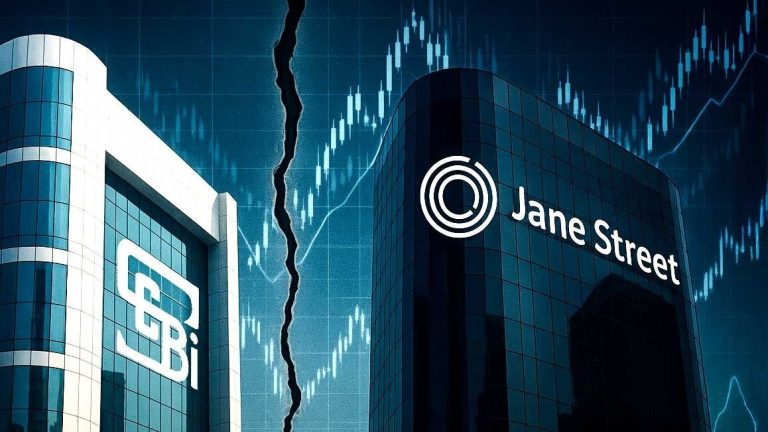On Monday, a report revealed deepening losses in equity derivatives among India’s retail traders, fueling concerns that the Securities and Exchange Board of India may impose tighter curbs. Just days earlier, the regulator barred Jane Street Group from dealing in local markets, alleging the trading giant manipulated prices to make billions of dollars at the expense of small investors — charges the US firm has denied.
Buoyed by a boom in derivatives trading, BSE saw its revenue surge in recent years, even as the regulator began curbing the options frenzy late last year. Now, with mounting fears of even stricter oversight and larger rival National Stock Exchange of India Ltd. preparing for a public listing, BSE faces questions over whether the trading landscape that powered its rise is about to shift.
“This is the time for BSE to innovate and adapt,” said Deven Choksey, managing director at wealth management firm DRChoksey FinServ Pvt. “The exchange that can come up with differentiated products that solve the issue of individuals losing out to high-frequency traders will be able to corner volumes going ahead.”
The Jane Street fallout has already taken a toll on BSE, with the shares on July 4 suffering one of their steepest declines this year — extending a slide that had already begun. The stock, whose price ballooned more than 900% over the past two years, is now down 21% from its June peak. On Friday, it closed at its lowest price in almost two months.
According to Jefferies Financial Group Inc., reduced volatility and the curbs on Jane Street led to a 25% week-on-week drop in index options premium turnover across both BSE and NSE on Thursday, the first major derivatives expiration day since the ban. That, the brokerage estimates, could shave 4% off BSE’s earnings per share in the current fiscal year.“Easy gains may be behind BSE,” said Sonam Srivastava, founder of Wright Research in Mumbai. Current valuations reflect hopes of structural change, and BSE will need to deliver on them, she added.Founded in 1875 by cotton merchant Premchand Roychand, BSE began as the Native Share & Stock Brokers’ Association, where brokers met under a banyan tree near Mumbai’s Town Hall before it moved to it current location on Dalal Street — the equivalent of Wall Street. Over the decades, BSE introduced key innovations including the benchmark BSE Sensex Index in 1986. It now hosts more than 5,000 listed firms.
BSE’s journey hasn’t been without setbacks. A billion-dollar scandal shook India in 1992, when Mumbai broker Harshad Mehta illegally diverted bank funds into the stock market — an episode that prompted reforms and reshaped the nation’s investment landscape. SEBI was granted statutory powers, and the fully-electronic NSE launched in 1994, quickly emerging as a formidable player and forcing its rival to adapt. BSE moved to electronic trading the following year.
More recently, as millions of new investors embraced stocks and derivatives, BSE ramped up spending in infrastructure to improve its trading platform and transparency, Chief Executive Officer Sundararaman Ramamurthy said by email. While the exchange’s share of India’s daily $14 billion cash equities trading — an area long dominated by the NSE — has stagnated at about 6%, the launch of derivatives tied to the Sensex and BSE Bankex Index has helped, he said.
BSE’s net income surged more than fourfold to 4.94 billion rupees ($58 million) in the quarter ended in March, with derivatives accounting for more than half of it.
“Our efforts have paid off,” said Ramamurthy, who took over in 2023. “Sensex index derivatives are now the world’s fastest-growing derivatives contract.”
For Dubai-based Siddharth Balachandran, recent regulatory measures aimed at protecting retail investors offer more reassurance than concern. A shareholder since BSE was privately traded over a decade ago, Balachandran held a 3% stake as of March 31, making him the largest shareholder after Life Insurance Corp. of India Ltd., the nation’s top insurer.
SEBI’s moves “only improve the foundation of credibility and relative safety that I base my decisions on,” he said.
Balachandran, who also owns NSE shares and plans to keep them for the long haul, said his investments are rooted in the belief that the shift in household savings to financial products will accelerate, providing a tailwind for exchanges.
BSE, he said, is a proxy for India’s growth story.
“My strategy is to align with institutions that can stand the test of time,” Balachandran said. “BSE was the obvious choice.”







